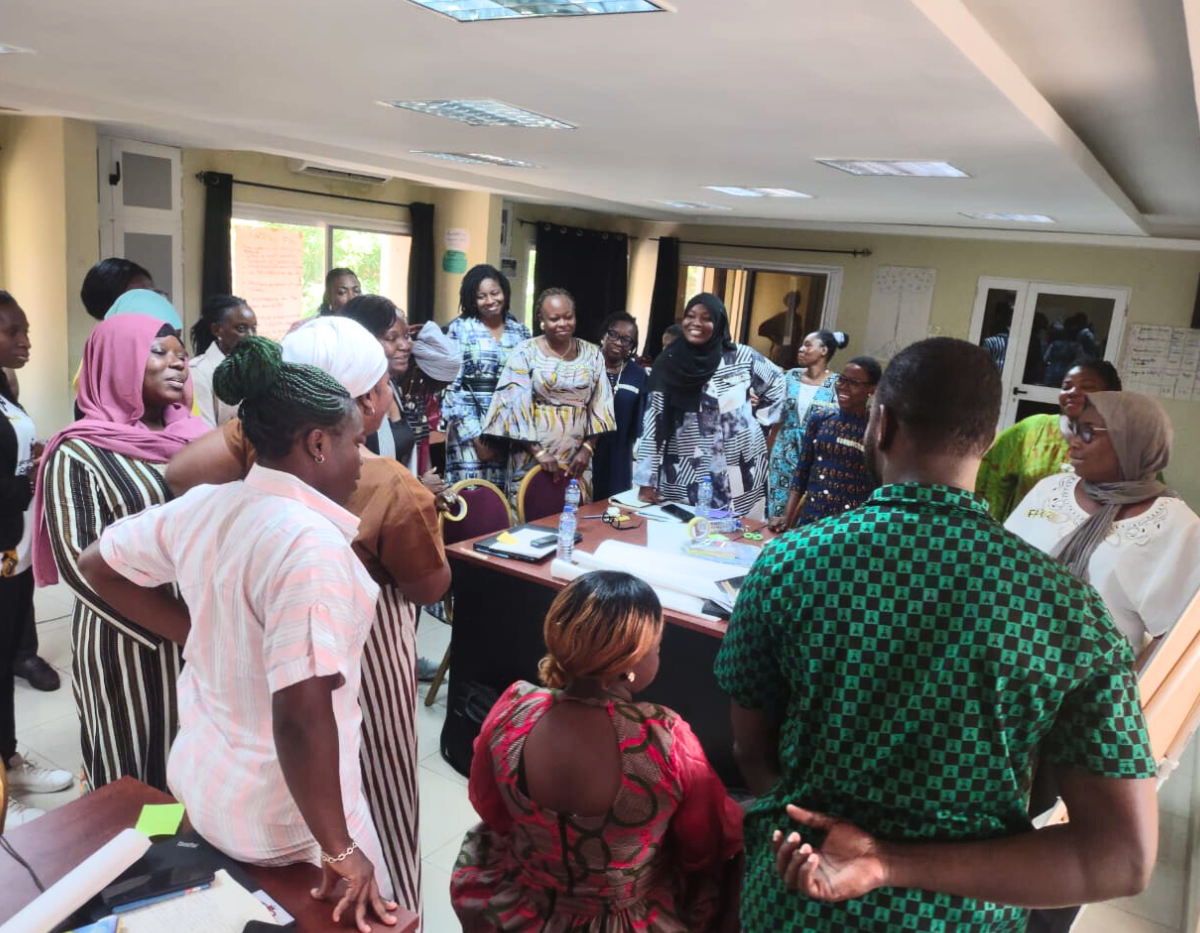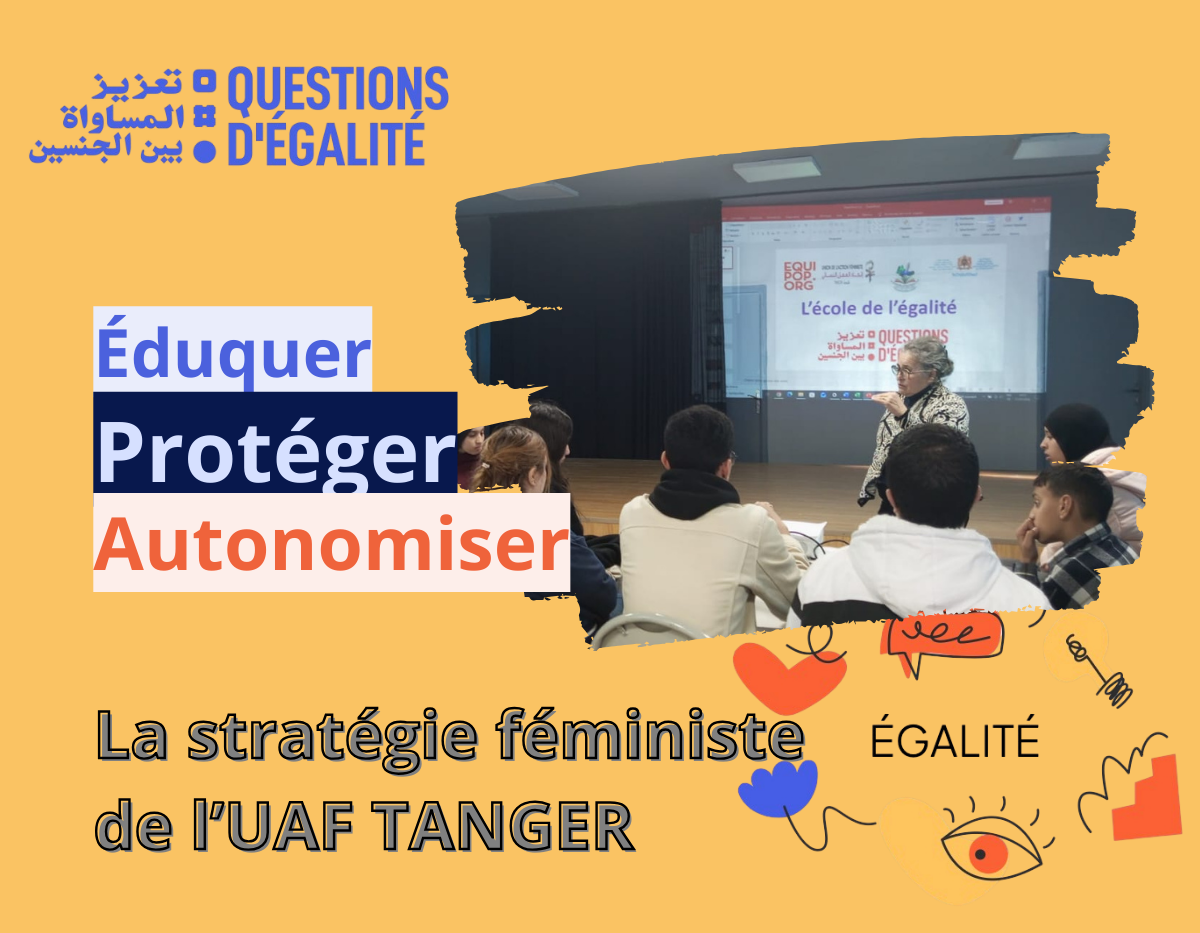Equipop took part in the 69th session of the Commission on the Status of Women (CSW), held at the United Nations from March 10 to 21. This year marked the 30th anniversary of the Beijing Platform for Action (Beijing+30), a roadmap for advancing gender equality and women’s rights worldwide. To mark this milestone —and in a climate weighed down by the rise of fascism— a political declaration was adopted by Member States at the opening of the session.
The CSW opened on March 10, 2025, marking the 30th anniversary of the Beijing Platform for Action, adopted by UN Member States in 1995. This reference text is still seen by many governments and civil society organisations as the most progressive framework ever adopted at the UN on gender equality and women’s rights. It identifies 12 critical areas of concern and provides recommendations to guide States in implementing gender equality at the national and international levels. The 2025 session offered an opportunity to review progress made and renew political commitments to fully implement the Platform. In his opening remarks, UN Secretary-General António Guterres warned that “the poison” of patriarchy continues to attack women’s rights, particularly sexual and reproductive health and rights (SRHR). He denounced growing pressure on civil society, the drastic decline in funding for feminist organisations, and the lack of political will from States to make real progress on the rights of women and LGBTQIA+ people. In this context, a political declaration was adopted by Member States at the opening of the CSW, following difficult negotiations over several weeks. These discussions were particularly strained due to the strong presence of conservative countries such as the United States and Argentina. While it was symbolically important that States agreed on a common text for Beijing+30, the search for consensus ultimately came at the expense of SRHR. After having provided technical support during the negotiation process, it was essential for Equipop and its feminist allies to be present and mobilised at CSW to counter the reactionary offensive spreading through multilateral spaces—an offensive that was already clearly visible under the Trump administration.
A geopolitical climate hostile to women’s rights and gender equality for Beijing+30
UN Member States gathered in New York in a geopolitical context increasingly hostile to international solidarity and gender equality. Just two months earlier, Donald Trump had taken office and swiftly issued a series of executive orders attacking development aid, climate action, the fight against HIV, and the rights of women and LGBTQIA+ people. The new United-States (U.S.) administration has declared war on “gender ideology” in favor of so-called “biological truth,” even going so far as to remove all references to gender from official government websites. This rhetoric reduces women to their biological roles and reproductive functions, and translates into numerous transphobic policies. Trump also rejoined the United States to the “Geneva Consensus Declaration,” a non-binding text reaffirming opposition to abortion rights. This anti-rights offensive from the U.S. is occurring in parallel with widespread cuts to official development assistance (ODA), including among several European countries (France, the Netherlands, the United Kingdom, Finland, Sweden, Germany…). These budget cuts are having an unprecedented impact on multilateral funding, on the work of feminist organisations, and more broadly, on gender equality. This context shaped the content of both the political declaration and the general debates at CSW. Despite not being a member of the Commission, the United States pushed an ultra-conservative agenda in alliance with Argentina under Javier Milei, as well as with the Vatican, Russia, and several West African countries. In all its statements, the U.S. rejected the term “gender,” including in the commonly used phrase “gender equality.” During the high-level segment of the CSW, they also sponsored and co-organised an official event with two US-based anti-rights organisations on ‘the attack of gender ideology on women and the family’. The most conservative States also tried to introduce ambiguous provisions on “women and the family”: the family was considered to be “the basic unit of society”, and the wording limited women’s role to being mothers in the household, without recognising the disproportionate mental burden placed on them in terms of domestic tasks, or the violence that can exist within the family unit.
Sexual and reproductive health and rights excluded from CSW69
The political declaration adopted on the first day of the Commission includes some progress compared to the 2020 declaration. Although it is not legally binding, it does represent a certain commitment by the international community. It recognises, for instance, the need to combat gender-based and sexual violence both online and offline, particularly in times of conflict—an important step, given how often these topics are red lines for countries like Russia. The issue of flexible, sustainable and long-term funding for civil society is recognised as a critical point in achieving gender equality. The declaration also reiterates the need for states to honour their ODA commitments. Strong language is included on the issue of health, including mental health, menstrual health and universal health coverage. However, SRHR were completely omitted, even though they are fundamental to the realisation of women’s human rights and gender equality. The section on education made no mention of comprehensive sexuality education, despite its critical role in preventing gender-based violence and addressing HIV. The declaration also included no reference to the human rights of LGBTQIA+ people, even though it did acknowledge the existence of multiple and intersecting forms of discrimination affecting women and girls. Even though the declaration was adopted by consensus, several States expressed reservations about the text on the final day of CSW. The United States opened the floor by rejecting any reference to the right to development, climate change, the term gender, and the 2030 Agenda as a whole. Argentina, Russia, and Burkina Faso all opposed references to “multiple and intersecting forms of discrimination,” and insisted that they interpret gender exclusively as a binary, biological concept. Russia also rejected the concept of human rights altogether. Several States—such as Canada (speaking for the “Mountains” coalition), Chile (for the Latin American coalition), Poland (for the EU), Brazil, and Tunisia—welcomed the adoption of the declaration. However, only the South American states expressed regret that SRHR were excluded from the final text.
Civil society: a key actor against the anti-rights agenda
Faced with the virulence of anti-rights actors, civil society organisations were highly mobilised throughout the two weeks of CSW. Equipop participated in many events organised by feminist actors, which brought SRHR back to the forefront and highlighted growing concerns about the rise of fascism. Organisations such as AWID, Outright International, the Institute for Journalism and Social Change, and Le Planning Familial (French member of IPPF) sounded the alarm on the links between anti-gender discourse, Big Tech, and authoritarianism, while also creating space for collective strategy-building. CSOs denounced the lack of political will in the face of anti-rights attacks, particularly at a time when feminist movements are chronically underfunded. They also called out the quiet erasure of progressive voices from international conferences, recalling that the conferences in Mexico, Nairobi, and Beijing had gone much further in terms of intersectionality and decolonial thinking. CSW also offered an opportunity for Equipop and its partners in the Walking the Talk project to present, during an event, their Common Ask Framework on feminist funding to activists from around the world. Equipop also took advantage of the large presence of feminist activists, donors, and institutional actors in New York to officially launch the Francophone Feminist Alliance (AFF), co-led with FIDH and FFMed. The organisation facilitated several meetings between AFF partners, the French Ministry for Europe and Foreign Affairs, and a delegation of French parliamentarians to highlight the importance of funding gender equality and feminist organisations. These discussions came just days after France launched its own “feminist diplomacy” strategy. Equipop also met with Hadja Lahbib, the European Commissioner for Equality, soon after the publication of the EU’s new roadmap on women’s rights.
A global mobilisation for feminist foreign policies
Alongside its analysis and suggested amendments to the political declaration as part of the Countdown 2030 Europe consortium, Equipop also engaged in strategic dialogue with the French Permanent Mission to the UN, and supported France throughout the negotiation process. This dialogue must continue—more than ever—in the lead-up to the UN Financing for Development Conference and the Feminist Foreign Policy Summit organised by France in 2025. In its statement on behalf of the group of States promoting feminist foreign policies, France reiterated a clear message: we must continue to defend multilateralism against conservative forces, keep gender equality and women’s rights front and center on the international stage, and provide substantial funding to feminist organisations and movements in the face of backlash. France must now live up to these commitments in the name of its feminist foreign policy. This means ensuring coherence between the messages it delivers internationally and the government’s actual funding decisions—especially by preventing the drastic ODA cuts from disproportionately affecting the feminist organisations supported through mechanisms like the FSOF. We will continue to advocate for this in the coming months, alongside French parliamentarians. CSW69 made one thing clear: political leaders must hear the concerns raised by feminist organisations and recognise that attacks on women’s rights and gender equality go hand in hand with the rise of authoritarianism and fascism. Now more than ever, action is urgently needed.





